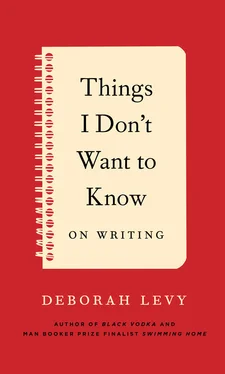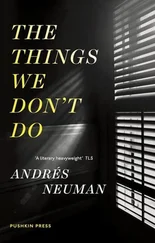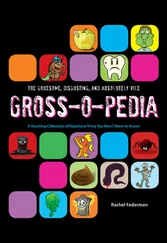— Marguerite Duras, Practicalities (1987)
Was Marguerite Duras suggesting that women are not so much a dark continent as a well-lit suburb? If maternity is the only female signifier, we know that the baby on our lap, if it is healthy and well cared for, will eventually turn away from our breast and see someone else. He will see an other. He will see the world and he will fall in love with it. Some mothers go mad because the world that made them feel worthless is the same world with which their children fall in love. The suburb of femininity is not a good place to live. Nor is it wise to seek refuge inside our children because children are always keen to make their way in to the world to meet someone else. Yes, there had been many times I called my daughters back to zip up their coats. All the same, I knew they would rather be cold and free.
It was said that I refused to grant any value to the maternal instinct and to love. This was not so. I simply asked that women should experience them truthfully and freely, whereas they often use them as excuses and take refuge in them, only to find themselves imprisoned in that refuge when those emotions have dried up in their hearts.
— Simone de Beauvoir, Force of Circumstances , Vol. III (1963)
I began to see the groanies and moanies in the playground as human skeletons wearing pastel cardigans with sequins sewn on to the buttons. The Oh my Gods were skeletons wearing tracksuits. We were all uneasy in the Societal System that divided the playground so forensically and stupidly into rich and poor skeletons.
A particular mother of my acquaintance had eyes so small the moanies and groanies would have called them piggy eyes. It was not that her eyes were literally small, it was as if they wanted to disappear in to her head. Every time we met in the playground, I found myself trying not to stare but I couldn’t help myself. When her tiny peepholes tried to wriggle away from my gaze, it was usually when she was insisting (unusually, it has to be said) that her charismatic but bullying husband was the love of her life. In fact he had loved her right out of her life. I remember thinking at the time, yes, never mistake hate for love.
It was as if she had told herself in the voice of the masculine consciousness she imitated, but had no rights to inhabit, that she did not suffer fools gladly (me) and that she stood for certain kinds of values. Most confusing of all, she was required to raise the children more or less without her husband’s participation, yet feel entitled on his behalf to mock and judge the single mothers on the other side of the playground. The way she ventriloquised her husband’s values and standards sounded not so much crazy, as crazed. She was really not very likeable but I began to regard her as a political prisoner. It seemed to me that her eyes wanted to disappear into her head because she did not want to see that the reality she had bought into might just slaughter her.
And what about my own eyes? My eyes which so quickly filled with tears on escalators were trying not to stare at all that was wrong in my own situation, but, Oh my God, they didn’t know where to look.
I was certainly not looking at Maria who was now sweeping the courtyard with her back turned to me.
I decided to visit the village shop to look for the pure chocolate that had so intoxicated Marquez’s errant fictional wife, Bernarda Cabrera. The strange thing was I found it. There in front of me, lying with the other bars of more familiar confectionery, was a bar of Chocolate Negro Extrafino: Cacao 99 %. Ingredientes: cacao, azucar. It even had a warning on the wrapper telling me this chocolate was ‘intensidad’. The owner of the grocery store was a distinguished Chinese man originally from Shanghai. For as long as I had known him he was always reading books behind the counter, tortoiseshell spectacles perched half-way down his nose. His black hair was now streaked with silver as we exchanged superficial greetings: how are you, yes not many tourists at this time of year, yes it is very cold, the forecast said it might even snow, how was I going to spend my day?
I told him I was about to walk to the next village to see the monastery where George Sand and Frederick Chopin stayed during the winter of 1838.
He smiled but it was a more of a grimace. Ah yes. Jorge Sand. The Majorcans did not like her. She dressed in men’s clothing and she said Majorcans preferred their pigs to people. No. Jorge Sand was not a woman he would like to share a bottle of wine with. When I laughed I was not really sure what I was laughing about or who I was laughing at. I paid him for the chocolate, and then as a second thought bought an extra bar of the 99 % cacao for Maria.
George Sand (who was really Baroness Amantine Aurore Lucile Dupin) smoked large cigars to get through her day. She would have needed them living in the gloomy Carthusian monastery of Jesus the Nazare. With its withered flowers and suffering wooden saints lurking in the alcoves, it seemed a sinister place to live with children and to have a love affair. The guidebook told me that she had no choice but to rent rooms here, because no one dared offer accommodation to Chopin who had been diagnosed with tuberculosis. I admired her for trying to keep cheerful for her children and writing at her desk wearing Chopin’s trousers instead of wasting her life weeping about her circumstances. With this in mind, I briskly walked out of the monastery and made my way through the almond trees towards the silver sea, fierce and roaring beyond the cliffs.
As the waves crashed on the rocks and the wind numbed my fingers, I waited for something to happen. I think I was waiting for a revelation, something big and profound that would shake me to the core. Nothing happened. Nothing happened at all. And then what came to mind was the poster in my bathroom called ‘The Skeletal System’ which I had misread as ‘The Societal System’. The second thing that came to mind was the mute piano in Maria’s hallway, a piano that was polished every day but never played. I don’t know why it preoccupied me, but it had caught my attention. In fact I had tried not to look at it on my way down the stairs that morning. I thought about all the things I had hoped for and I laughed. The sound of my own cruel laughter made me want to die.
Later that evening, when I asked Maria’s belligerent brother for an extra blanket to get me through another night in freezing Majorca, he pretended not to understand me. I could smell wood smoke all over the valley and it was obvious to me that every house had a fire going. Sure enough the one restaurant open out of season had a log fire burning at the back of the room and I made my way towards it. When the waitress came to tell me that noooo waaaay could I sit alone at a table laid for three, I took a tip from Maria’s brother and pretended not to understand her. This prompted the German couple sitting nearby wearing identical hats, coats and walking boots to translate what she was saying into German, then Portuguese, and finally a language that sounded like Russian. I concentrated on the menu with incredible focus, nodding annoyingly at the furious waitress and earnest linguists, until I noticed the Chinese shopkeeper was sitting in the bar. He waved and walked over to my table for three.
So, he asked me, did I still think the Majorcans were lucky to meet a lewd and discourteous woman like Jorge Sand?
I told him, yes, they were very lucky to meet her and I was lucky to meet him too because I was just about to be dragged away from my table by the fire. He sat down and explained that even though she came from the sophisticated cuisine of France where everyone cooked with butter, it is not right to mock peasants for cooking in cheap oil, as she did. His accent became more Chinese than Spanish when he said that. It was as if his voice had suddenly dropped from one altitude to another, like turbulence on an aeroplane. I invited him to share a bottle of wine at my table for three.
Читать дальше












